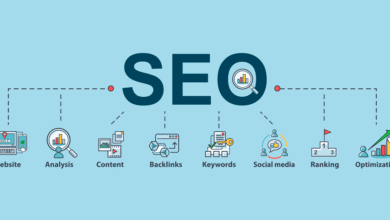
Projector Service Center in Delhi NCR – Professional Solutions for Every Projector Issue
In today’s world, projectors are more than just a luxury — they’re an essential tool for business, education, and entertainment. From high-stakes corporate presentations to cozy home theater nights and engaging classroom lessons, projectors play a major role in delivering visual impact. However, frequent usage, environmental factors, and natural wear and tear can affect performance.
If your projector is showing signs like dim lighting, blurry images, unusual colors, or connectivity failures, it’s time to consult a professional Projector Service Center in Delhi NCR. These centers have the tools, skills, and genuine parts needed to restore your device to optimal condition.
Why Choose a Professional Service Center?
1. Trained Technicians
Professionals with brand-specific expertise understand the intricate workings of projectors from leading manufacturers such as Epson, BenQ, Sony, Panasonic, Optoma, and ViewSonic.
2. Genuine Parts
Authorized centers use original lamps, lenses, and circuit components, ensuring your projector runs at full capacity for years to come.
3. Advanced Tools
From precision lens alignment to firmware upgrades, professional workshops are equipped with modern tools that guarantee accurate repairs.
4. Repair Warranty
Most reputed service providers offer a warranty period on repairs, assuring quality workmanship.
Common Projector Issues in Delhi NCR
The dusty, hot, and sometimes humid climate of Delhi NCR can be challenging for sensitive electronics. Common issues include:
-
Image Blurriness – Caused by dust on lenses, misalignment, or defective optics.
-
Overheating – Due to clogged air vents, broken cooling fans, or continuous usage.
-
Lamp Failures – Lamps have a lifespan limit and must be replaced before burnout.
-
Color Problems – Issues with the color wheel or internal chips can distort colors.
-
Signal Loss – HDMI or VGA ports may get damaged from frequent use.
-
No Power – Faulty power supply units or damaged motherboards can cause shutdowns.
Services Offered by Projector Service Centers in Delhi NCR
1. Comprehensive Diagnostics
Detailed hardware and software inspections to pinpoint the exact cause of problems.
2. Lamp Replacement
Safe replacement of projector lamps with genuine models and calibration for proper brightness.
3. Lens Servicing
Cleaning, polishing, and alignment for sharp image projection.
4. Circuit Board Repair
Fixing damaged ICs, capacitors, and other electronic components.
5. Cooling System Maintenance
Replacing faulty fans, cleaning vents, and applying thermal paste to prevent overheating.
6. Firmware & Software Updates
Upgrading firmware to fix bugs and improve performance.
7. Port Repairs
Repair or replacement of HDMI, VGA, and USB ports for smooth connectivity.
Advantages of Choosing a Local Projector Service Center in Delhi NCR
-
Quick Turnaround – Repairs are usually completed within 1–3 days.
-
On-Site Visits – Some issues can be resolved at your home or office.
-
Lower Costs – No shipping fees or long waiting times.
-
Direct Communication – Talk directly to the technician handling your device.
How to Choose the Best Projector Service Center
Before booking a repair, consider these points:
-
Check Reviews – Look at Google and Justdial ratings.
-
Brand Experience – Ensure they have experience with your projector’s brand.
-
Parts Guarantee – Confirm the use of original spare parts.
-
Warranty Policy – A good center offers at least 30–90 days warranty on work.
-
Clear Estimates – Get a written estimate before repair work starts.
Maintenance Tips for Long-Lasting Projector Performance
-
Keep it Clean – Use dust covers and clean vents regularly.
-
Avoid Overheating – Ensure adequate ventilation and avoid prolonged continuous use.
-
Lamp Management – Replace lamps before they fail completely.
-
Cool Down Properly – Let the fan run for a minute after switching off.
-
Annual Servicing – Schedule regular professional maintenance to prevent big repairs.
Conclusion
Your projector is a valuable investment — whether it’s for work, study, or entertainment. Ignoring small issues can lead to costly repairs or even complete device failure. A trusted Projector Service Center in Delhi NCR offers skilled repairs, genuine parts, and preventive maintenance, ensuring your device delivers crystal-clear visuals for years to come. Don’t wait for problems to worsen — get professional help today.
From business meetings and seminars to home theater experiences and classroom lessons, projectors have become a key part of our visual communication and entertainment needs. Modern projectors deliver stunning clarity, vibrant colors, and advanced features — but like any electronic equipment, they require care, maintenance, and occasional repairs.
Frequently Asked Questions (FAQs)
Q1: How much does projector repair cost in Delhi NCR?
A: Basic servicing starts from ₹800, while advanced repairs can cost ₹5,000–₹12,000.
Q2: Can I get on-site repair?
A: Many service centers offer doorstep inspections for an additional fee.
Q3: How do I know if my lamp needs replacement?
A: If brightness drops significantly or the lamp warning indicator appears, it’s time for a change.
Q4: Are projector parts easily available in Delhi NCR?
A: Yes, reputed service centers stock genuine parts for all major brands.
Q5: Which brands are serviced in Delhi NCR?
A: Epson, BenQ, Sony, Panasonic, Optoma, ViewSonic, LG, and more.




